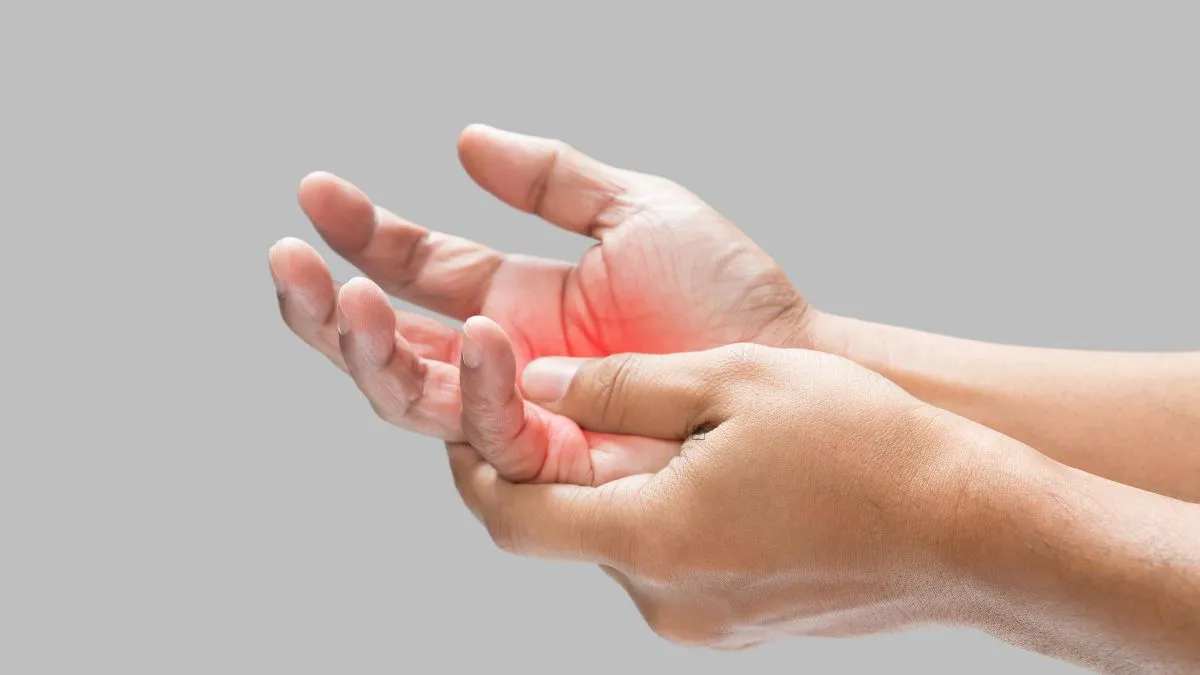- By Priyanka Munshi
- Wed, 29 Jan 2025 06:19 PM (IST)
- Source:JND
Guillain-Barre Syndrome (GBS) is a rare condition in which the immune system attacks the nerves, leading to muscle weakness and, in some cases, paralysis. While there is no specific diet to cure GBS, maintaining a healthy diet can support recovery, boost the immune system, and improve overall well-being. By following all of these dietary guidelines that are given below, individuals with GBS can support their recovery process, enhance nerve function, and improve overall health. Consulting a healthcare professional for personalized nutritional advice is always recommended. In a conversation with Jagran English, Dr. Neha Rastogi Panda, Consultant-Infectious Diseases at Fortis Memorial Research Institute in Gurugram, discussed dietary recommendations for individuals with GBS, including foods to avoid and general nutritional advice.

Foods To Eat In Guillain-Barre Syndrome (Image Credit: Canva)
Guillain-Barre Syndrome (GBS): Dietary Recommendations, Foods to Avoid, And Advisory
What Are The Foods To Avoid In Guillain-Barre Syndrome?
- Highly Processed Foods: Avoid junk food, such as chips, cookies, and sugary drinks. These foods are low in nutrients and can contribute to inflammation, potentially slowing down recovery.
- Saturated and Trans Fats: Foods like fried items, fast food, and packaged snacks can increase inflammation and negatively impact nerve health. Instead, opt for healthy fats found in nuts, seeds, and fish.
- Excess Salt: High salt intake can raise blood pressure and strain the cardiovascular system, which may already be compromised in some GBS cases.
- Sugary Foods and Drinks: Consuming too much sugar can lead to blood sugar spikes, causing energy crashes and potentially affecting nerve function. Choose natural sources of sweetness, such as fruits.
- Alcohol: Alcohol can interfere with nerve recovery and worsen symptoms like muscle weakness and imbalance. It is best to avoid it during the recovery phase.

Dietary Recommendations For Managing Guillain-Barre Syndrome
- Focus on Anti-Inflammatory Foods: Include plenty of fruits and vegetables like spinach, broccoli, berries, and oranges. These foods are rich in antioxidants, vitamins, and minerals that help reduce inflammation and support nerve repair.
- Include Lean Proteins: Protein is essential for muscle repair and recovery. Incorporate sources such as chicken, fish, eggs, beans, and tofu into your meals.
- Stay Hydrated: Drinking plenty of water helps flush out toxins and keeps the body functioning optimally. Aim for at least 8–10 glasses of water per day.
- Consider Omega-3 Fatty Acids: Found in fatty fish like salmon, walnuts, and flaxseeds, omega-3 fatty acids support nerve health and reduce inflammation.
- Monitor Vitamin Intake: Ensure adequate levels of essential vitamins, particularly B12 and D, as they play a crucial role in nerve function. Speak to a doctor about supplements if necessary.
- Small, Frequent Meals: Fatigue can make large meals challenging. Eating smaller, balanced meals more frequently can help maintain steady energy levels throughout the day.

